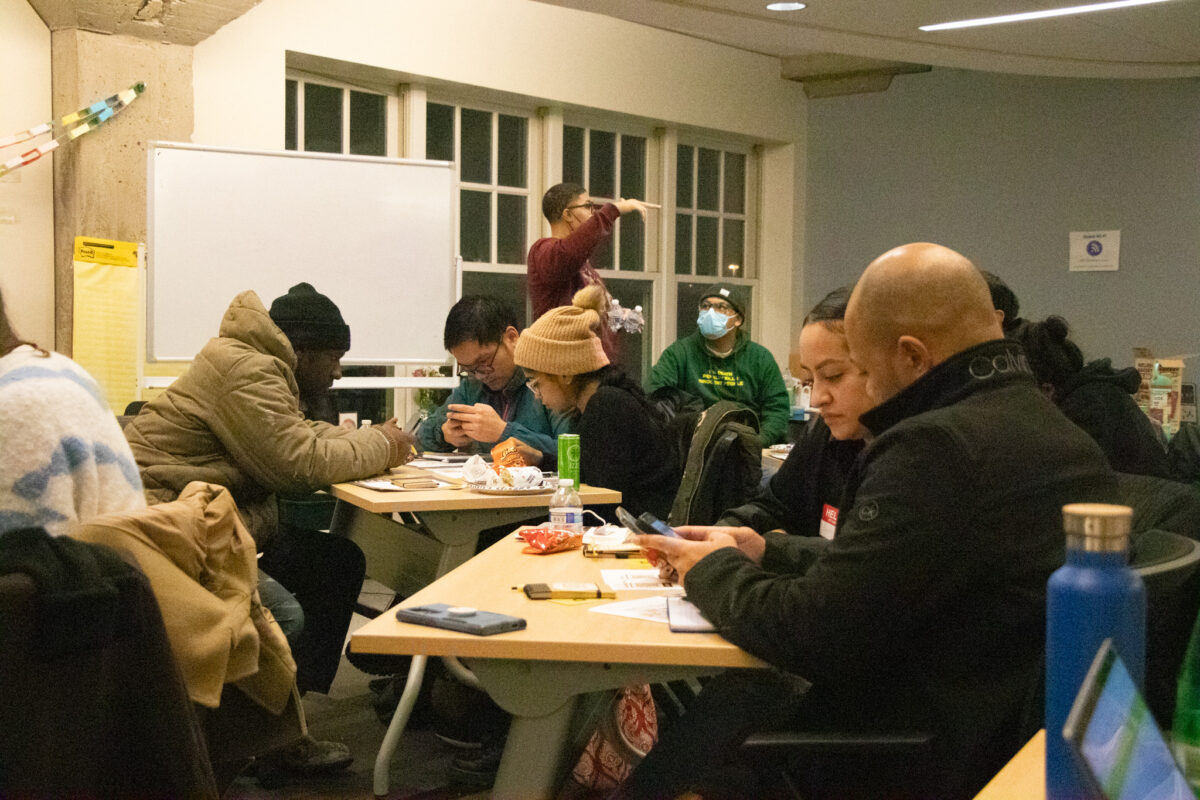We’re celebrating a milestone at the Weekly. On March 18, 2021, we published the very first Public Meetings Report. Now, in this issue, we’re publishing the 75th report. Altogether that’s around 75,000 words and five to eight public meetings reported on every two weeks—some five hundred over four years.
And we believe you should be celebrating, too.
We see reporting on public meetings—city councils, county boards, school boards, park districts, water reclamation districts, local school councils in Chicago—as an important public service. So important that we devote valuable editorial space to it in nearly every issue. But we have to ask, does the public want to be served in this way?
We believe that if you really knew what happens in those meetings—that the decisions made there can change your day-to-day lives for the better or for the worse—the service that the Public Meetings Report and our partners, City Bureau’s Documenters Network (documenters.org), provides would be at the top of your must-read list.
Not surprisingly, such meetings aren’t all that well-attended. After all, agendas can be extensive and on the nitty-gritty side. “Boiler tuning and maintenance services,” “truck scale maintenance services,” and “professional auditing services” were three of twenty-six items considered at a February 6 meeting of Metropolitan Water Reclamation District of Greater Chicago (MWRD) commissioners. (Our recap is in the Public Meetings Report from our February 27 issue.)
Neither are the meetings convenient for working people with families and other interests and responsibilities. In other words, pretty much all of us. The two-hour MWRD meeting began at 10:30 on a Thursday morning.
Another issue is that there are so many “governmental units” that conduct so many meetings. In Illinois alone, estimates range from 6,930 such units (U.S. Census Bureau) to 8,923 (Civic Federation), as reported by the Tribune. That’s more than any other state, including Texas and California, the Tribune notes.
As boring as they might seem, these meetings are fundamental to what makes a democracy work and a cornerstone of why news reporting exists in the first place. All sorts of things happen in these meetings that may one day affect your life and your community. It’s where public officials vote to approve developments, zoning changes, TIF districts, and landmark status for buildings. It’s where proposals like Treatment Not Trauma are debated and considered.
All of a sudden, they’re not so boring. They’re in your face—or in your backyard or on your block—and you’re asking how that happened, who said that was OK, and what can we do about it? And how can we make sure that it does (or doesn’t) happen in our neighborhood? Now what happened in that meeting from a few months ago is more interesting.
If you want to step up before the final decisions are made, you can attend the meetings in person or online, or get someone from your street or neighborhood to attend. It’s your right, and some might even say it’s your democratic obligation. The meetings are open to everyone, no matter your immigration status, employment, arrest record, or how much you know about the topics being discussed. By law, these meetings offer time for public comment, when members of the public can voice what they think. When you or neighbors do attend or tune in, speak up. This is one chance to directly reach elected public officials or career public servants about the proposals on the table.
Sometimes attending the meetings can be impossible; even with online options, it’s easy for work, family, and community obligations to get in the way. Some meetings are also recorded, and you can watch the videos later, but it may not be feasible to do so with all the meetings you’re interested in learning about.
That’s where we hope the Public Meetings Report can be helpful. While you may not be able to weigh in on meetings that have passed, you can at least learn what was discussed at the ones you missed. We take the notes and summaries of meetings created by Documenters and put together a short write up in print every issue so you can get it all in just a few minutes.
We also recommend you go directly to the source: Documenters (documenters.org). Started by City Bureau in 2018, Documenters is a civic engagement program in which everyday people can get trained to attend and document public meetings. Now operating in fourteen states, Documenters has covered more than 2,600 meetings and trained over 1,000 documenters in Chicago alone. On the Documenters website, you can see a list of past and upcoming meetings, often with agendas, and sometimes notes, videos, and Documenters reports.
You can become a Documenter and get paid to attend and document meetings. Documenters use a simple format to report on what your neighbors would see and hear if they could attend those meetings. It’s what you would tell your family, friends, and neighbors when you came back. Though it does take time and effort, it’s not hard to do. You can find those reports at documenters.org and register for the free training there, too. It takes around two hours.
Having done the Public Meetings Report for so many years, we’d like to hear from you, our readers, what you get out of it and what you’d like to see more of. Should we include a section on how to give public comment? A list of upcoming meetings? Do you read the report to get the latest on a specific committee or because you’re trying to learn what’s going on across all the meetings?
We’ve prepared a brief survey, which you can access by scanning this QR code with your phone or heading to bit.ly/SSW_PMR_Survey. You can also email us at editor@southsideweekly.com with “PMR” in the subject line with your thoughts. We’ll listen, we’ll hear what you’re saying, and we’ll do our best to do something about it.

